Alternator overcharging is not safe or suitable for your vehicle. Symptoms of alternator overcharging can be very hard to notice in your car, various reasons can be behind it.
Especially if you are not driving for a long time, knowing how to tell if your alternator is overcharging and how to fix an overcharging alternator can save your car and also save your money.
But, you should not worry about your alternator because after reading this whole article about alternator overcharging, you will know why your alternator is overcharging and how to fix it. So, Let’s dive right in.
What Is An Alternator In A Car
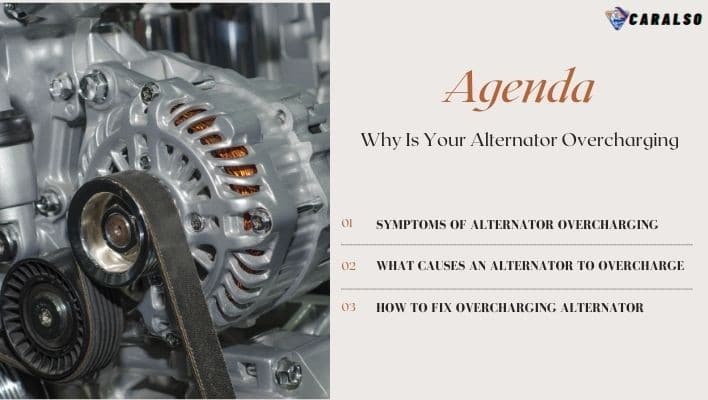
When you want to know why your car alternator is overcharging, you should first know what an alternator is in a car and the alternator job.
An alternator is an electrical generator, which converts mechanical energy to electrical energy.
An alternator’s job in a car is to charge the battery and keep up your car’s electricity system while your car is not running.
An alternator is located in front of your car engine, and the alternator has a belt around it.
Without an alternator in a car, the car’s electricity system will not be able to work efficiently.
Overcharged and a bad alternator can make your car battery keeps dying, the battery may not get a sufficient amount of charge, and the battery won’t hold a charge, and so on.
Symptoms Of Alternator Overcharging
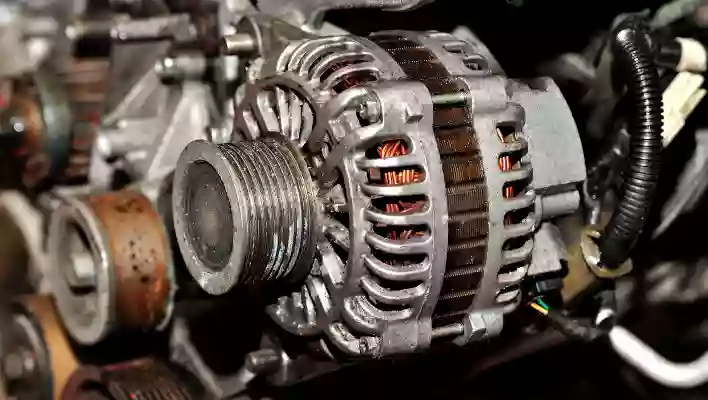
In most cases, if your car battery gauge reads high and the battery is becoming swollen, those sights strongly says your alternator is overcharging.
Here are the common symptoms of alternator overcharging :
- Car Battery Overheating
- Battery Gauge Read High
- Car Battery Liquid Draining
- Battery Will Be Swollen
- Battery Electricity Will Be Low
1. Car Battery Overheating
As you know, an alternator produces charge to the battery, so when your alternator is overcharging, the alternator supplies excessive charge to the battery, which will lead your car battery to overcharge.
Inside your car battery, there are some sheds that hold the electricity and have holding capacity.
So, When alternators supply more charge to these sheds inside of your battery, they simply won’t handle the charge; that’s why it gets overheated.
The car battery resists excessive charge, but the rest of the electrical charge stays in the battery and makes it warm.
If you have doubts about alternator overcharging, then you should touch and try to feel the temperature of your car battery.
Related: Why Battery Gauge Drops While Driving
2. Battery Gauge Read High
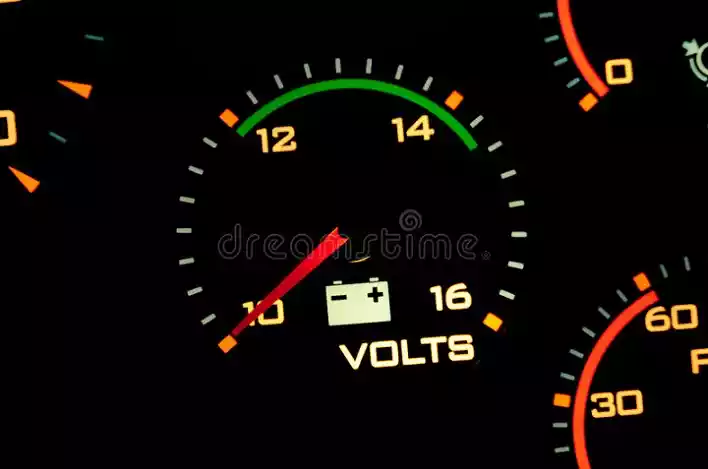
You may know how to read the battery gauge in the car. On your car’s dashboard, there is a voltmeter that is the battery gauge.
The voltmeter displays the battery current voltage. If you notice the voltmeter is reading high, this may indicate your alternator is overcharging.
If your car alternator overcharge, this will lead the battery gauge reading high always. A typical battery gauge or voltmeter should read around 12.6 to 12.8 volts.
But if the alternator is overcharged, it will read higher than that.
3. Car Battery Liquid Draining
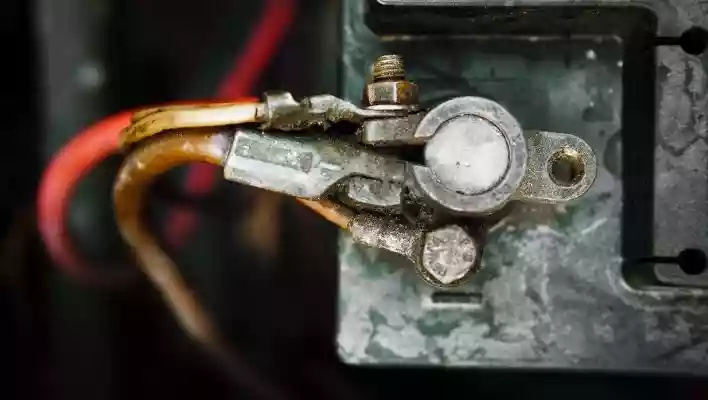
Battery leaking can be another symptom that tells the alternator is overcharging. Your battery can drain for many reasons.
Typically the car battery is leaking acid through the cell caps on the top of the battery.
Noticing a car battery leaking is easy because the battery leaking is visible and quite noticeable.
So. when you see a battery leaking in your battery, you should check the car alternator.
See Also: 7 Ways To Keep Car Battery From Dying
4. Battery Will Be Swollen
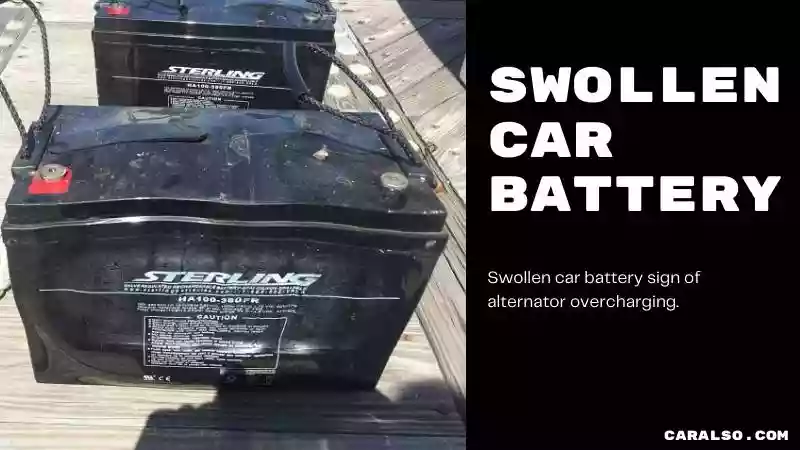
The battery will swell because of hydrogen gas inside of the battery.
If your car alternator is overcharged, it can create more and unusable hydrogen gas inside your car battery, which will lead your battery to be swollen. The battery can swell from the side or top of the battery.
Especially if you don’t vent the battery properly, then the battery will swell quickly. Check your battery for swell around it.
The swollen battery is the most common sign that tells your alternator is overcharging.
5. Battery Electricity Will Be Low
The battery electricity level should be normal. Whether your car battery’s electricity is low or high, both conditions are not good for your car battery.
That’s why if you notice your car battery electricity is too low, then you should check the alternator for overcharging.
Excessive charge from the alternator makes your car battery lose electricity. The battery lost the ability to hold an electrical charge over time, and eventually, the battery lost more electricity.
If you properly give attention to your car battery, you will notice something that will tell your car alternator is overcharging.
You don’t need to be hesitant when you see any of these symptoms in your car battery because you can fix alternator overcharging.
What Causes An Alternator To Overcharge
Some of the most common causes an alternator to overcharge are battery fault, Voltage regulator in your car, and Alternator size. Also, if you improperly jump-start your vehicle, this can also overcharge an alternator.
Here are some causes an alternator to overcharge :
- Voltage Regulator
- Battery Incorrect Replacement
- The Battery
- Internal Regulator
- Wrong Alternator and Voltage
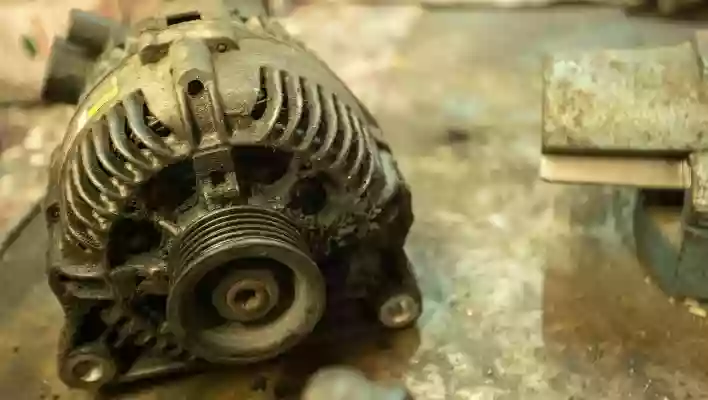
Voltage Regulator
The external regulator or voltage regulator work is to force the alternator to maintain the voltage. The external regulator transforms your car alternator into a three-phase charging system.
The external regulator has the ability to modify the alternator charge profile. It modifies the alternator charge to match the right battery charge time and battery life.
By three electromagnetic contact switches inside of the housing, the voltage regulator can open and close. So, contact switches have a big role in the external regulator.
If voltage regulator electromagnetic switches get stuck or not working or disengage, it will produce an overcharge to the alternator. And this is how the voltage regulator can cause the alternator to overcharge.
Battery Incorrect Replacement
An alternator can overcharge for an incorrect replacement of your car battery. Whether it’s you or your car mechanic, anyone can forget the right way to replace the car battery.
The modern car owners are facing more battery incorrect replacement issues in their cars because the modern car needs signals from the electrical control unit.
When you put the wrong size of a car battery in your car or install the battery incorrectly, this will can’t meet the car’s electrical system properly.
So, eventually, the alternator will be overcharged, and also the battery is going to be very hot. That’s why always replace or install your car battery with a professional.
Learn More: How To Put A Car In Neutral With A Dead Battery
The Battery
Alternator overcharging does not only damage the alternator itself. An overcharging alternator also damages the battery.
If your alternator overcharges, it will produce more voltage to the battery and make your battery very hot, and eventually, the battery will lose the electrolyte.
If you jump-start your vehicle, make sure you do it in the right way because an improper way of jump-start can lead your car alternator to overcharge.
Improper jump-start the car can supply surge through battery cable which can damage or destroy battery cells.
And this surge also shatters the alternator wiring. When alternator wiring is disrupted, the alternator is going to overcharge.
That’s why knowing the proper way to jump-start the car is necessary for a car owner. Battery cells can be fixed if you know the appropriate way to fix battery cells.
Internal Regulator
The Internal Regulator is located inside of your car’s alternator. The internal regulator has one wire which is connected with an external regulator (aka Voltage Regulator).
Internal regulator wire helps the external regulator to operate the alternator from the outside of the box.
If the Internal regulator’s wire gets unplugged or disconnected, this minor issue leads your car’s alternator to overcharge.
If the internal regulator is not regulated properly, it can produce excessive charges to the alternator. That’s why regular checking of alternators can avoid this issue easily.
Wrong Alternator and Voltage
As a car owner, you will need to replace and install the alternator in your car. Whether you or a car mechanic replace the alternator, make sure to install an appropriate alternator for your car—an alternator that is appropriate for your car model.
You need to remember that some alternators can provide a huge amount of voltage, which can be excessive for your car.
When you put the wrong alternator in your car, it will supply higher or less charge, which can cause alternator overcharging.
If your car’s headlight or dashboard lights dim and the HVAC blower motor starts running slowly, this means you put the wrong alternator in your vehicle. Always avoid putting the wrong alternator in your car.
These are the reasons why your car alternator is overcharging. If you can’t figure out what causes your alternator to overcharge, you will not be able to fix the alternator overcharging issue.
That’s why check your alternator for overcharging. After you find out why your alternator is overcharging now, you need to fix the overcharging alternator.
How To Fix Overcharging Alternator
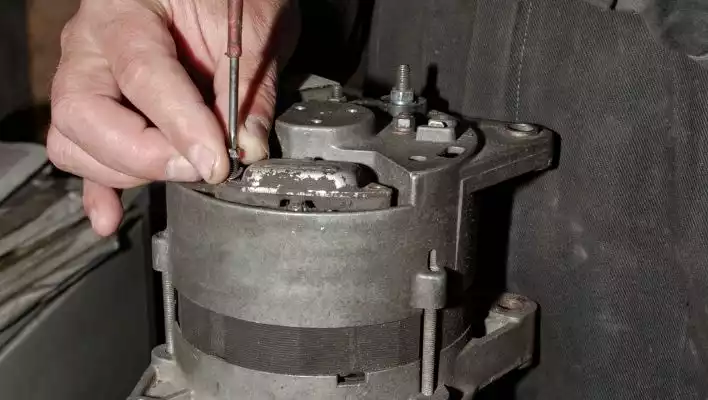
By replacing some components of your car, such as replacing the voltage regulator, the battery and engine control unit can fix overcharging alternators.
Before replacing anything in your car to fix the alternator overcharging issues, you must be sure what defective component needs to be replaced.
So, Let’s see how you can fix the overcharging alternator in your car:
- Replace the Voltage Regulator
- Check the Battery Ground Connection
- Replacing the Battery
- Check the Engine Control Unit
Replace the Voltage Regulator
In most cases, the voltage regulator is the main culprit which overcharges an alternator.
Your voltage regulator may be too old, or the voltage regulator switch is defective. To fix an overcharging alternator, you may need to replace the regulator.
Replacing a car voltage regulator won’t cost you a lot. The average voltage regulator price is around $10 to $50, and of course, the regulator price depends on your car model and which quality you want. Replacing labor costs depends on your region.
Check the Battery Ground Connection
As you know, your car battery needs a ground connection because grounding refers to the base level voltage potential for every electrical system.
That’s why you may have heard many times that properly grounding a car battery is necessary.
Car battery grounding connection can be defective for the terminal. If your car battery ground terminal is too old and corroded, it will not work effectively.
It will supply the power very quickly or not at all. In addition, you may test all of your car battery cables to see future cable connection issues in your car.
If you detect your battery ground terminal is defective, re-servicing the battery grounding connection can keep your alternator from overcharging.
Replacing the Battery
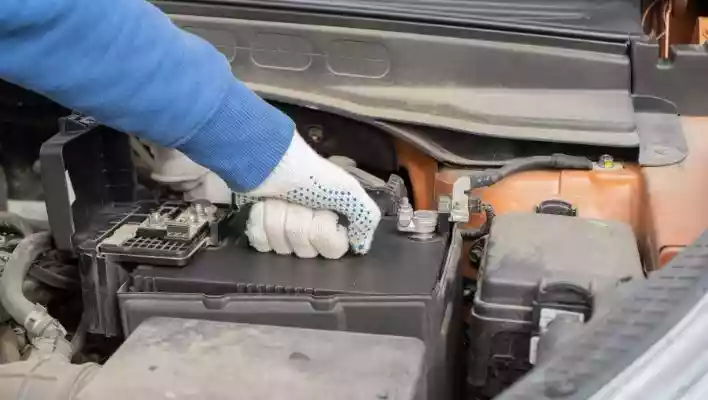
An overcharging alternator leads the car battery to overheat and lose electrolytes over time. And eventually, the whole electrical system in a car will fall.
Similarly, if your car battery is unhealthy and doesn’t work as it should, this can make your car alternator overcharge.
Correctly check your car battery and make sure your car battery is healthy enough to supply the electricity to the whole car.
After reviewing your car battery, if you see the battery is defective, you need to replace the battery to solve the alternator overcharging issue.
Fortunately, you can change your car battery without losing settings. Changing the car battery by disconnecting all the settings is quite hard, and you may need a professional to do that.
Before replacing your car battery, you should be certain about alternator overcharging because an automotive battery is not so cheap.
A battery will cost you between $60 to $150, depending on your vehicle model.
Check the Engine Control Unit
You may know that the engine control unit (ECU), also known as an electronic control module (ECM), has many roles in your car. The engine control module controls your car alternator system.
So, if anything is wrong with your ECM system, it can directly affect the alternator. That’s why you must check the engine control unit (ECU) in your car.
Resetting your car computer or updating your car computer can solve the car alternator issues.
Surprisingly, To rest the car computer, you don’t need to disconnect the battery connection. You can reset the car computer without disconnecting the battery, and it’s straightforward.
Alternator Overcharging FAQs
How much to replace an alternator?
Usually, an alternator replacement will cost you around $120 to $250. A quality alternator always costs you higher. Try to buy a quality alternator for your car; this will save you more money in the long run.
How long does it take to replace an alternator?
The time for replacing an alternator depends on the mechanic’s knowledge and experience, who replaces the alternator.
Typically, replacing an alternator will take around two or three hours. Of course, for an experienced mechanic, replacing an alternator will take less time.
What is the labor cost to replace an alternator?
The labor cost to replace an alternator is not too low; it will cost you between $100 and $150.
This range of price does not include tax because tax always changes depending on different states and regions.
How fast will a bad alternator kill a new battery?
Unfortunately, your new battery could last as little as 1 hour with a bad alternator. Max 2 hours, your new battery could last with a faulty alternator.
That’s why if you notice your alternator is bad, you should get service for your alternator as fast as you can.
How much voltage is too much from an alternator?
An alternator needs between 13.8 and 14.2 volts to charge a 12-volt vehicle battery effectively.
If you see your alternator voltage between 13 to 14 volts, that tells your car alternator is operating properly.
But, 15 volts is too high for an alternator, and 12 volts is too low for an alternator.
Final Words
After you read the whole post about alternator overcharging, you should now know what causes your car alternator to overcharge, the symptoms of alternator overcharging, and how to fix an overcharging alternator.
Knowing all of the alternator overcharging issues in your car saves you money and helps you maintain your car battery properly.
Before changing or replacing any component in your car, you have to be certain.
Regular maintenance is the key to keep your car healthy and also for your car battery.
Regular check-ups and proper use of your car component will help you to avoid issues in your car.

Hey there,
How is it going?
I’m Meraj Sarker. I am a Car Mechanic and a student of Automobile Restoration here in Florida, USA. I’ve been studying automotive for around 9 years now. So you can rely on my recommendation. For me, studying and getting knowledge about automobile it’s really fun and entertaining. I will help you to get solutions for your car through this website. If you need any help let me know.

Nice, U took time to break it down. It was so helpful. Thank you..
Hello Engr. Udofia,
How are you doing?
I’m really happy to help you and I also appreciate your every words.
Thank you so much.